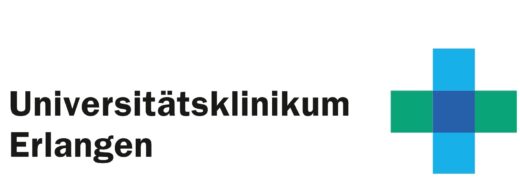The Benefits of Being a Caregiver Scale (BBCS) is a valid instrument for recording the benefits that caregivers (CGs) experience from their caregiving activities.
The BBCS is a self-assessment scale with 14 statements about caregiving benefits, which are rated by participants on a 5-point scale. The total score is therefore a measure of the extent of the benefits experienced; the higher the score, the more benefits are experienced (see “Evaluation and Interpretation” below). It is very easy to use in research and practice and is available free of charge in German and English. It was extensively scientifically validated by Pendergrass and colleagues in 2023.
The BBCS can be used to accurately record the type and extent of benefits. This approach is of considerable importance for research and practice, as benefits are associated with advantageous effects for CGs. Initial evidence of a buffering effect was found in international research (Semiatin & O’Connor, 2012). This finding means that the negative psychological (e.g., depression) and physical (e.g., physical complaints) effects of home care can be mitigated by experiencing benefits (Fabà et al., 2017; Pendergrass et al., 2018).
The BBCS can be completed by anyone who cares for/supports/provides nursing care for one or more relatives in need of care in a domestic setting.
Practical measures can be designed to reduce the burden on CGs and promote the experience of benefits in order to improve the living situation of both CGs and care recipients.
Further information: The role of benefits in home care was examined in more detail in this Alpha discussion on ARD.
(1) Item Scoring: Each item is rated on a 5-point scale
| Response | Points |
| Strongly agree | 4 |
| Mostly agree | 3 |
| Neutral | 2 |
| Mostly disagree | 1 |
| Strongly disagree | 0 |
(2) Score Calculation: The total score is calculated as the sum of all item scores.
(3) Interpretation of the Score: The total score ranges from 0 to 56 points—the higher the total score, the more benefits (“gains”) are experienced from caring for a relative or loved one.
Here you can download information about how to evaluate and interpret the BBCS.
Here you can download information about how to deal with missing values.
Fabà, J., Villar, F., & Giuliani, M. F. (2017). Development of a measure to evaluate gains among Spanish dementia caregivers: the gains associated with caregiving (GAC) scale. Archives of Gerontology and Geriatrics, 68, 76-83.
Pendergrass, A., Mittelman, M., Graessel, E., Özbe, D., & Karg, N. (2018). Predictors of the personal benefits and positive aspects of informal caregiving. Aging Mental Health, 23(11), 1533–38.
Pendergrass, A., Weiß, S., Rohleder, N., & Graessel, E. (2023). Validation of the Benefits of Being a Caregiver Scale (BBCS)–further development of an independent characteristic of informal caregiving. BMC Geriatrics, 23(1), 26.
Semiatin, A.M., & O’Connor, M.K. (2012). The relationship between self-efficacy and positive aspects of caregiving in Alzheimer’s disease caregivers. Aging Mental Health, 16(6), 683–8.
You can register to download the scale here.
! Those responsible for this website guarantee that all information provided during registration will be treated confidentially, in particular that it will not be passed on to third parties.
Downloading is permitted for non-commercial use only, which means specifically that
- the respondent completing the self-assessment tool incurs no immediate (direct) costs (billing as a health insurance benefit by third parties, e.g., doctors, is possible) and
- the BBCS is not resold to third parties in any form as part of a combined survey tool consisting of several survey instruments (e.g., as part of a larger, fee-based assessment tool).
Benefits of Being a Caregiver Scale (BBCS); Caregivers (CGs)
